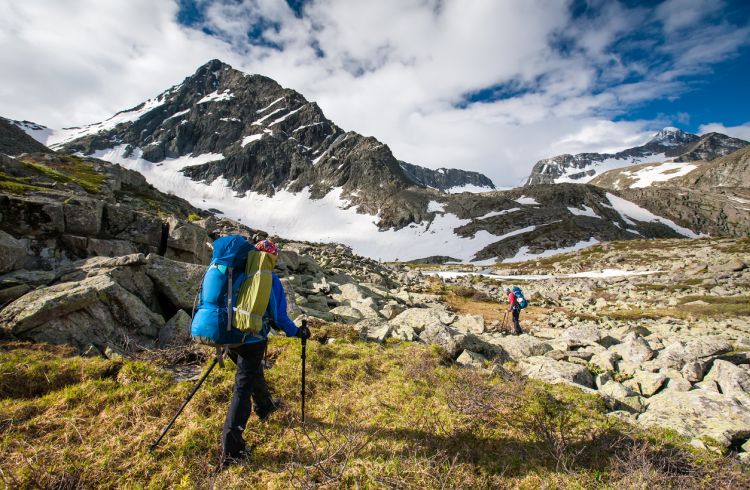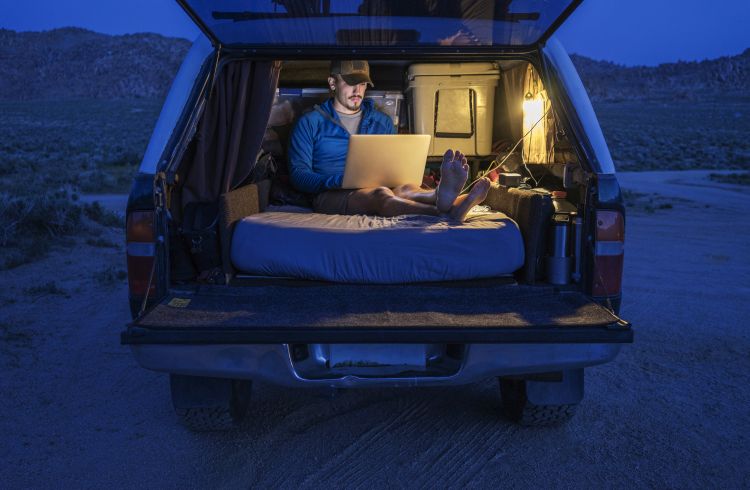How to Stay Healthy and Safe in Russia
It's important to be aware of any possible health risks before you go to Russia. Being safe is being prepared.
 Photo © iStock/kapulya
Photo © iStock/kapulya
Here are some helpful tips to keep you healthy on your trip.
Recommended vaccinations for Russia
Water-borne, food-borne, parasitic and other infectious diseases (including typhoid, rabies, hepatitis, diphtheria, measles and tuberculosis) are quite common, and outbreaks do occur from time to time.
Be sure to get up to date on your vaccinations. Russia is not known for their healthcare system so it's particularly important here. The shots that are worth considering are:
- Tetanus
- Diphtheria
- Typhoid
- Hepatitis A and B.
If you plan on doing any hiking, camping or spending time outdoors during the warmer seasons, you may also want to get vaccinated for tick-borne encephalitis (not all countries offer this - talk to your doctor, and if your country doesn't offer the vaccination, be sure to take the necessary precautions to avoid being bitten).
Health issues in Russia
HIV/AIDS risk
The threat of HIV/AIDS is unfortunately on the rise in Russia. This means that you will want to avoid anything involving needles. That tattoo or body piercing may seem like a cool idea at the time, but it may have deadly results. You also run the risk of getting Hepatitis B.
Prostitution is common throughout Russia, particularly in the larger cities like Moscow.
You'll often see women lingering around popular nightlife hotspots, such as clubs and bars and hotels, and basically anywhere they think travelers may be. It's estimated that nearly half the prostitutes in Saint Petersburg may currently be infected with HIV. If you do decide to take the risk and have an intimate encounter with a stranger you meet while in Russia, be sure to wear a condom.
Pedestrian and road safety
If you plan on driving while you're there, watch out. Russian drivers are notoriously aggressive so getting behind the wheel there can be dangerous. Getting around on foot can be just as hazardous. Pedestrians in Russia do not have the right of way, so whatever you do, don't step out into the street without carefully looking around first. Sidewalks aren't much safer, as impatient drivers may swerve right onto the curb to get around other traffic. No matter what, pay attention. A car accident means the strong possibility you'll end up needing medical treatment which should be avoided in Russia given the current state of the country's healthcare.
Can I drink tap water in Russia?
You've probably already heard not to drink the tap water, but remember that this contaminated water may also be found in ice cubes, fountain drinks and on fruit that's been washed. Also, stay away from street vendors and whatever food they may be selling. Most of them aren't licensed so there's no telling what's in their food, or how it was prepared. Taking your chances with the water or street food will likely result in you spending way more time in your hotel bathroom than you'd probably like. Worst case scenario, you may even find yourself in a Russian hospital, which you don't want. Stick to bottled water, even when brushing your teeth, and only eat at known, clean and popular restaurants.
Tick-borne encephalitis
If you plan on spending time outdoors, or participating in activities such as hiking or camping, be aware of the threat of insect-borne diseases, particularly tick-borne encephalitis (TBE), which is transmitted through tick bites. The best way to prevent insect bites is to use insect repellent with 30%-50% of the ingredient DEET. It's also a good idea to take additional precautions like wearing long pants, hats and long-sleeved shirts which should be tucked in. Wear boots instead of sandals and tuck your pants into your socks to cover any exposed skin.
Sunburn and heat exposure
In the height of summer, Russia can experience temperatures up to 95 degrees farenheit (35 degrees celsius) so whether you are walking around Moscow, touring Siberia or hiking in the Altai, it's essential to combat the effects of the sun. Because no one likes to be red raw sunburnt or severely exhausted from the heat.
Always wear a hat and sunglasses, apply broad spectrum sunscreen (SPF 30+ or higher) and wear light, long-sleeved clothing. Try to limit your activities during the hottest part of the day between 11am and 2pm. Ensure you stay hydrated by consuming plenty of clean water. This also applies if you are traveling in alpine areas too. While the temperature may not be bikini weather, the reflection from snow and icy surfaces can still cause you to end up sunburnt. In fact, it's worse in mountainous regions because the atmosphere is thinner.
Even on overcast days of your trip, still make sure you take precautions against the sun.
Hypothermia
Hypothermia can pose a real risk for travelers in alpine and mountainous areas. Temperatures can plummet at night, leaving you exposed to the cold and wind. Bring plenty of warm layers including a beanie. Keep as warm and dry as possible, keep active, consume plenty of water and food plus limit your intake of alcohol and caffeine.
Symptoms include numbness, tiredness, chills, delirium, cramps, and slurred speech.
Should you unfortunately experience a mild case of hypothermia, it is important to protect the affected area from wind chill or rain, dress warmly and consume hot drinks and food such as soups. Never rub a suspected hypothermia patient as it can result in cardiac arrest.
Seek medical treatment to prevent it from increasing in severity.
Altitude sickness
For those of you who like to hike, there are plenty of places to get out of the hustle and bustle of Russia's cities and into the wilderness. The Altai Mountains and Russian Caucasus rival many of Europe's other alpine mountain belts and highest peaks. At 18,510 ft, Mt Elbrus is higher than Mont Blanc and is one of the famed "Seven Summits". So if you plan to hike this and other mountainous regions of Russian, altitude sickness is something you need to consider. Get a dose of that and it will really put a spanner in your plans. In worse case scenarios, travelers have to be treated in a decompression (hyperbaric) chamber.
Russian healthcare
Medical treatment in Russia has improved considerably in the major cities such as St Petersburg, Moscow with high level quality care available in private clinics however in many locations treatment levels are poor and hygiene standards can be risky.
While the private clinics offer high standard of care, many of them don't accept medical insurance so it may end up being quite expensive. They will ask for upfront payment and for those which do accept medical insurance, evidence of appropriate and adequate insurance or a written guarantee of payment prior to treatment is required.
The upside is that you are more likely to encounter English speaking staff at the private clinics, handy if your command of Russian is super rusty. Reports and other essential documents will also be provided in English, whereas outside of the major centres and in state run medical services they will likely be in Russian.
Major state hospitals do have decent medical staff, however these hospitals can only be used in real cases of emergency. Health insurance is generally required in order to receive treatment at hospitals and many other facilities, so it's a good idea to know ahead of time whether your country has a reciprocal health care agreement (in which case, your domestic insurance will suffice) or if you should purchase additional travel health insurance. For serious illnesses or injuries you will need to medically evacuated to a destination with higher quality and a better range of facilities which can be quite expensive.
The number to call if you need an ambulance in Russia is 103 from a Russian phone line, or 112 when calling from a mobile phone.
If you plan to travel outside St Petersburg and Moscow, keep in mind that medical facilities will likely be of a low standard and medical supplies including medications can be scarce due to shortages.
Medications you may normally take at home may not be found in Russia, so it is recommended to bring what you need with you including a doctor's letter outlining their usage. Several governments such as the US, Australian and UK advise that some medications which contain narcotics or highly potent substances will also require a script translated into Russian and notarised by a notary public along with the doctor's letter. Check with the Russian Consulate in your country before departure to find out what is required. And as always, declare all medications when you arrive at customs in the airport.
Related articles
Simple and flexible travel insurance
You can buy at home or while traveling, and claim online from anywhere in the world. With 150+ adventure activities covered and 24/7 emergency assistance.
Get a quote
1 Comment